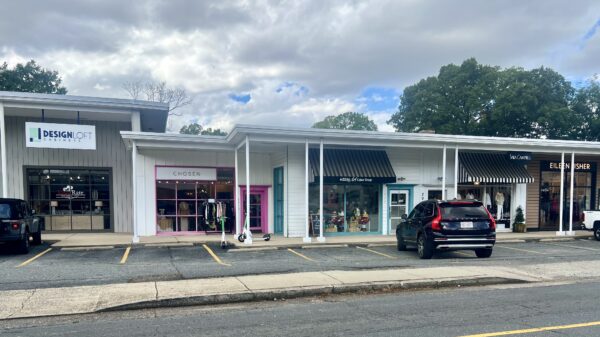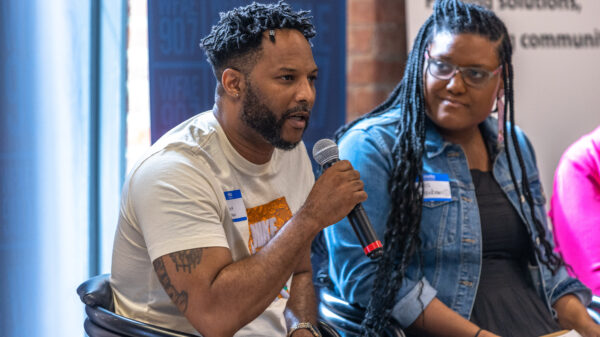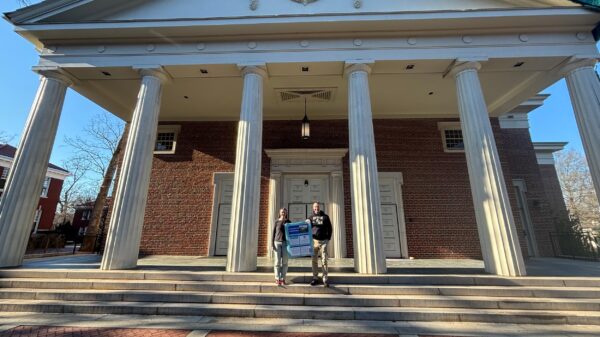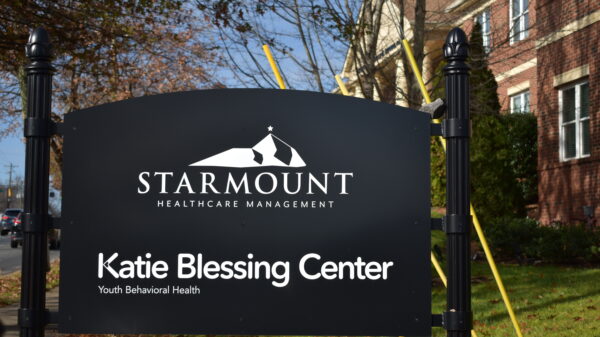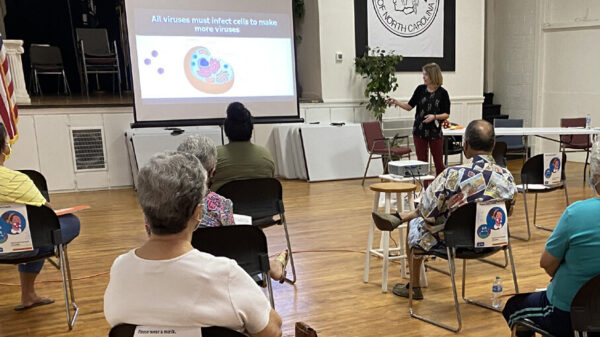In 2020, when COVID-19 was sweeping the state, more than 1,700 correctional officers left their jobs at North Carolina prisons.
That’s a 14% increase from the number of officers who left in 2019 and the biggest jump in more than a decade, according to an analysis of North Carolina state controller data by the Queens University News Service.
Prisons in North Carolina and nationwide were a hotbed for the coronavirus, which spread quickly among inmates and staff.
Last December, Latosha Newsome left her job as a correctional officer at Neuse Correctional Institution, a nearly 800-bed minimum- and medium-security prison in Goldsboro. She had been at Neuse less than a year. She now works at the jail in Wayne County.
Newsome said she left the state prison system for a variety of reasons: Poor pay. Low morale. Dangerous conditions. High turnover. And COVID-19.
“They couldn’t keep their employees, and it was a lot of COVID going around,” Newsome said.
Statewide, 10,000 inmates have tested positive for COVID-19, including nearly 500 at Neuse, N.C. Department of Public Safety records show. Fifty-three North Carolina inmates died.
Newsome said prison leaders kept officers in the Neuse inmate dorms. Almost half of the roughly 130 officers at Neuse tested positive, she said, including herself.
“They were having us not coming out of the dorms at all,” Newsome said. “Let your officers out, let them breathe, because us breathing the same air as them constantly is keeping us in the danger zone.”
John Bull, communications officer for DPS, said it is not reasonable to attribute the increase in the number of officers who left – or officer vacancy rates – to COVID-19. As of January, about 16% of officer positions statewide were vacant, DPS records show.
Officer vacancy rates at individual prisons include:
- .Polk Correctional Institution, a maximum-security prison in Butner – 26%
- .Alexander Correctional Institution, a maximum-security prison in Taylorsville, north of Charlotte – 22.6%
- .Gaston Correctional Center, a minimum-security prison in Dallas, west of Charlotte – 12.9%
Bull said COVID-19 has made it hard for prisons across the country to fill open positions. National news coverage of correctional officer departures predates the COVID-19 pandemic.
“It’s not a North Carolina system issue,” Bull said. “It’s a nationwide prison system issue. Prison systems across the country have a difficult time filling vacant correctional officer positions.”
Large prisons are often located in rural areas where it’s hard to recruit officers. In addition, officers must deal with inmates who can be aggressive. And they do it for low pay, Bull said. An entry-level correctional officer makes $36,000 a year.
In 2020, the prison system hired more than 1,900 officers, according to an analysis by the Queens University News Service. But that was a 5% drop in the number of correctional officers that the state hired the previous year, data show.
Bull said a decrease in the number of officers employed by the state was not because of COVID-19.
“I do not see any evidence that that is the case,” Bull said. “…Anecdotally, I’m sure some did leave because of COVID. Some surely left because they found better-paying jobs that were more available than in other years because of the unemployment rate. Some absolutely left because they reached retirement age.”
The state prison system took several steps to protect inmates and staff. It banned visits, suspended work programs and released thousands of inmates last year to help with social distancing. It also provided staff with protective equipment and – as of late April – fully vaccinated more than 10,800 inmates.
Forrest Behne, policy analyst for the COVID Prison Project, which monitors coronavirus cases in prisons across the country, said officers typically leave for a number of reasons. 2020 added a new one.
“Of course, there are the additional ubiquitous stresses of this past year,” Behne said. “Perhaps it’s money, perhaps there have been some medical concerns at home or maybe people have left to provide for childcare. Those are all of the things that jump to mind that I am certain can account for some of those staff reductions.”
Said Wanda Bertram, communications strategist of Prison Policy Initiative, a criminal justice reform group: “My guess is that many COs left their jobs last year because the job became too dangerous. Both because prisons are COVID-19 hotspots and because the restrictions put in place in prisons.”
James Baiardi is chairman of CorrectionsUSA, a not-for-profit that represents correctional officers.
He said the pandemic has made correctional officer work significantly more difficult.
“You can’t socially distance in prison,” he said. “You can attempt to make it a little better, but people have to be searched, areas have to be searched.”
Inmates must also interact and eat with each other, which makes containing the virus hard.
Additionally, prisons have to be manned 24/7. The state employs more than 7,500 correctional officers who supervise nearly 29,000 inmates.
“It’s stressful on everybody working there,” said Baiardi. “And when you add COVID-19, it doesn’t add up good for the officers.”
Dougani, Wesoly, Muhammad and Pinnock are students in the James L. Knight School of Communication, which provides the Queens University News Service in support of local news. Also contributing to this story were Austin Watkins, Alice Cristea and Jordan Grantz.

Mona Dougani
Former Managing Editor

Grace Wesoly
Reporter

Jeannette Muhammad
Reporter

Zahnell Pinnock
Reporter








